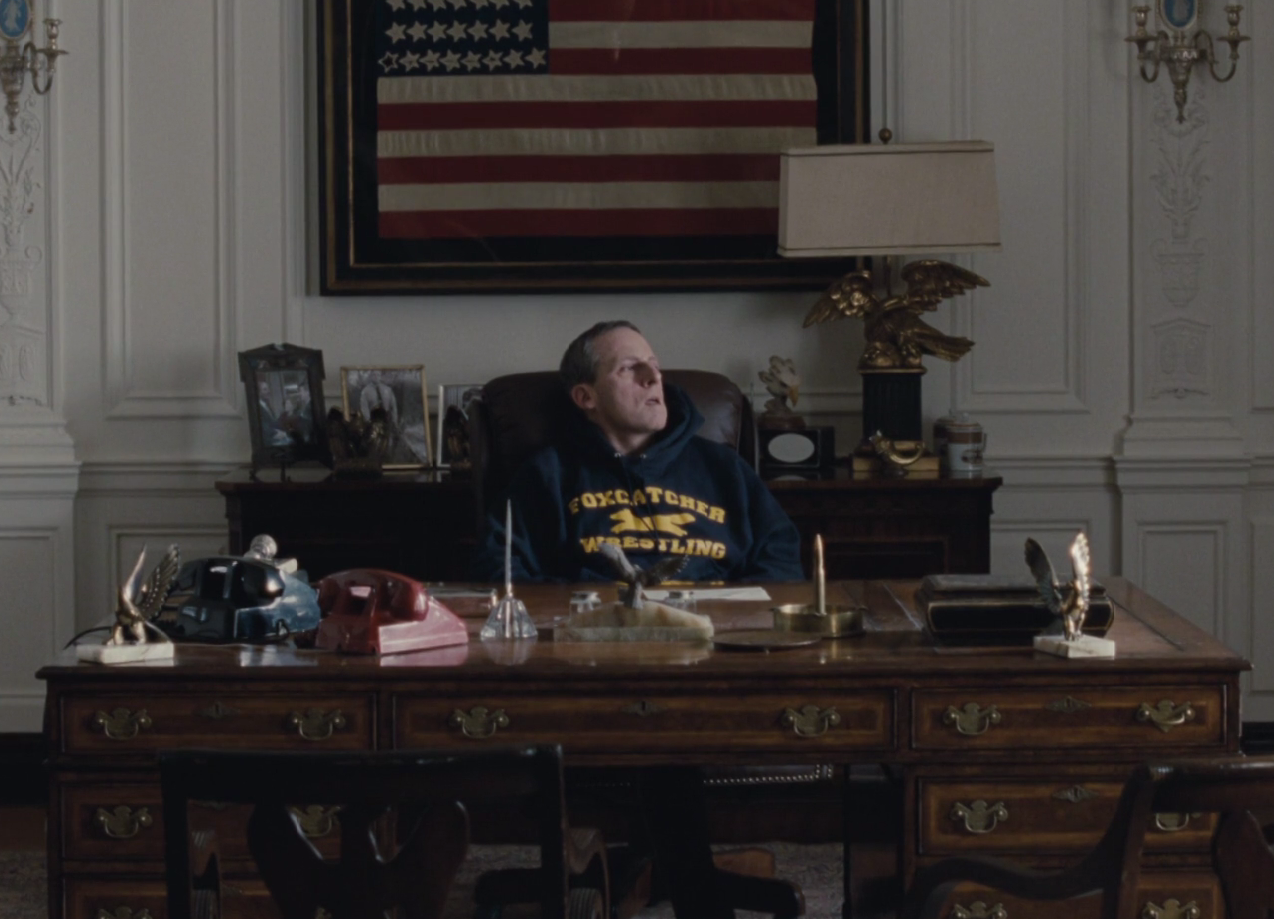As several media commentators observed
earlier this year, the blockbuster season, not too long ago confined to summer
and Christmas time, has begun to swell like No-Face from Spirited Away, consuming May and April and threatening to spill
over into March, November and perhaps even beyond. It’s a disconcerting trend
for those of us who would like to go at least a couple months without having to
hear the word “superhero”. Arguably, however, the same thing has already
happened with Oscar season. Although the films themselves still usually come
out sometime between October and December, thanks to festivals and a
proliferating, rather dubious field of online pundits, you start seeing
predictions for next year’s Oscars
before this year’s ceremony even
airs. This is also not a particularly good thing.
Take Foxcatcher, Bennett Miller’s
based-on-real-life story about Olympic-wrestler brothers Mark and Dave Schultz
and their disturbingly wealthy benefactor, John du Pont. The movie debuted at
the Cannes Film Festival in May to mostly strong reviews, and ever since then,
it’s been a mainstay on award prognosticators’ lists. On one hand, taking the
festival circuit route allows Foxcatcher
to build up hype; voters tend to go for sure bets (i.e. what they already know
they’re supposed to like), so once something cements its status as an Oscar
contender, it generally remains there. But at the same time, being labeled
“Oscar-worthy” comes with certain expectations. Oscar-worthy movies have
prestigious actors whose roles demand some amount of yelling and/or crying.
They involve more dialogue than special effects but are large enough in scope
that they don’t feel “slight”. They say Important Things about Important Stuff,
like slavery or the film industry, striking a comfortable balance between serious
and cathartic. The earlier you put yourself out in the open, the more time
people have to realize that you fail to meet those expectations and the
likelier it is that the initial goodwill will fade and you’ll experience a
backlash.
It’s probably
unfair to review a movie by talking about its hype and awards potential, since
that says nothing about its actual quality, but I can’t deny that I went into Foxcatcher with a specific vision in my
head and left feeling somewhat let down, disoriented for reasons I couldn’t
quite pinpoint. The truth is, this is not an Oscar movie. Sure, it’s based on a
true story and has an Oscar-nominated director at the helm, two elements that
never hurt your chances. Yet despite having guided both of his previous efforts
to Best Picture nominations, Bennett Miller is hardly a household name; like
J.C. Chandor, another rising talent who thrives on quiet adult dramas, his
style is too understated to garner the kind of devotion inspired by David
Fincher and Paul Thomas Anderson. The cast is more well-liked than prestigious
(of the three main actors, only Mark Ruffalo has an Oscar nomination), and
although it contains not-particularly-subtle messages about the danger of
American exceptionalism, this isn’t exactly Selma
as far as Important Stuff goes.



